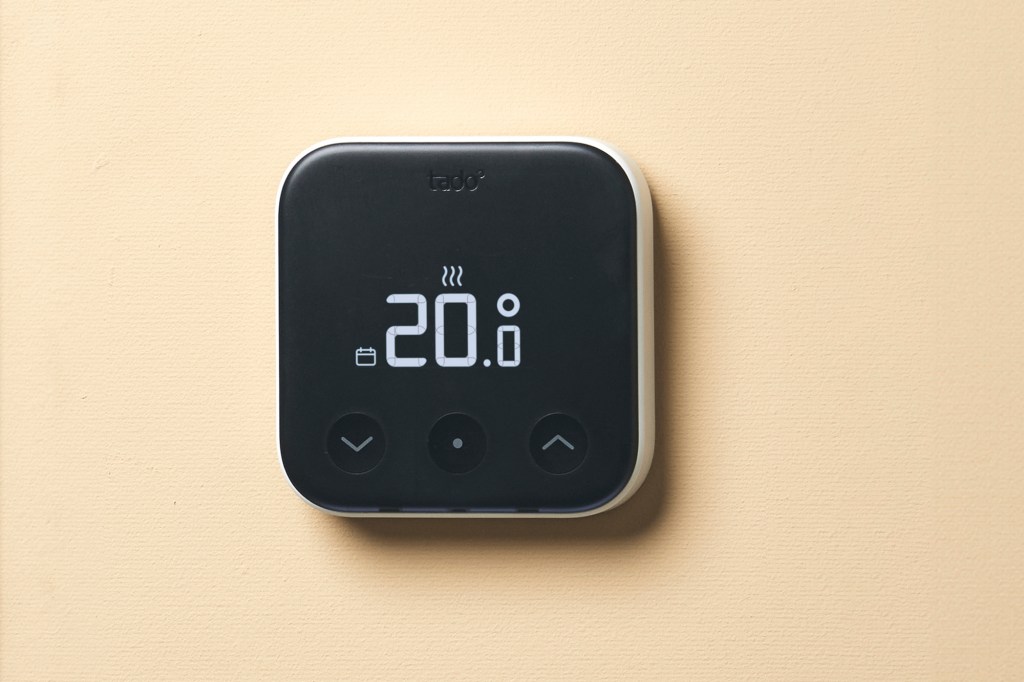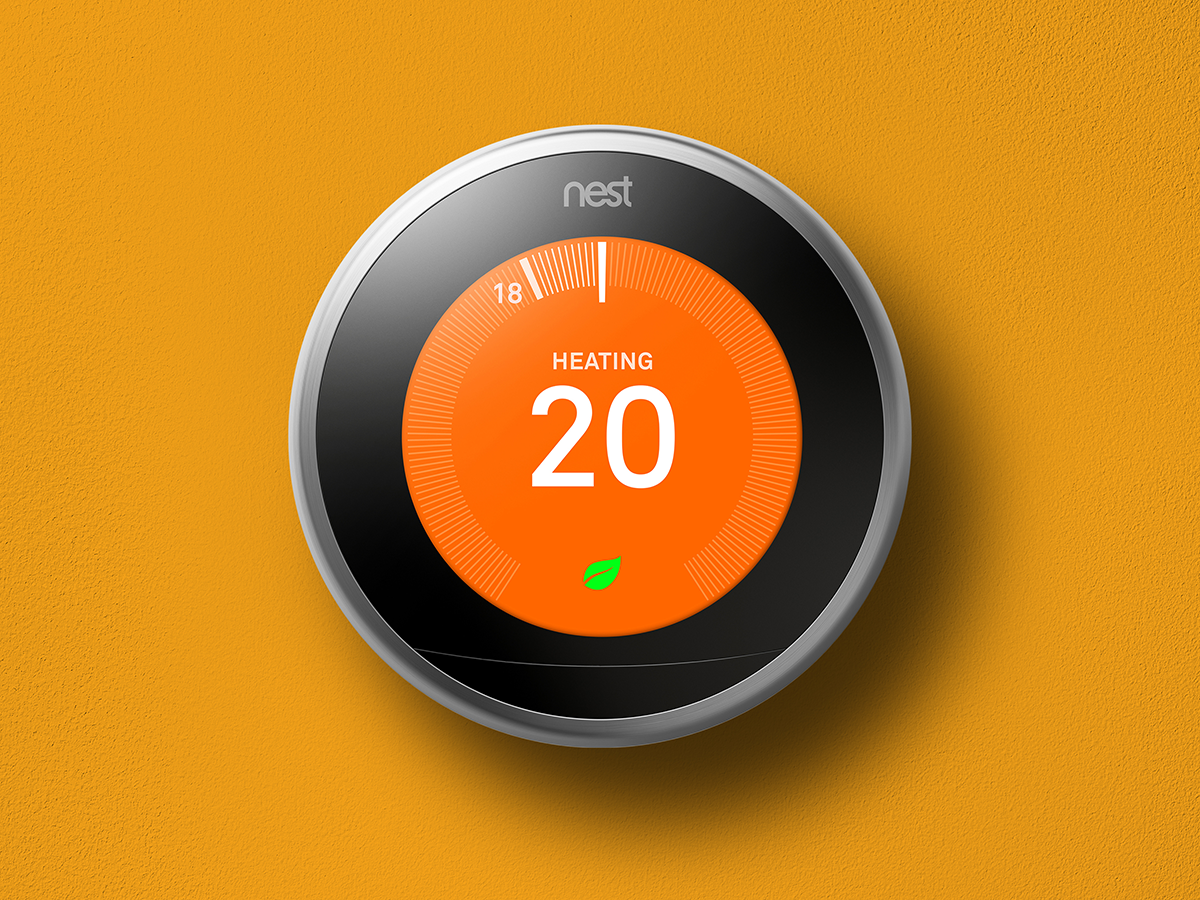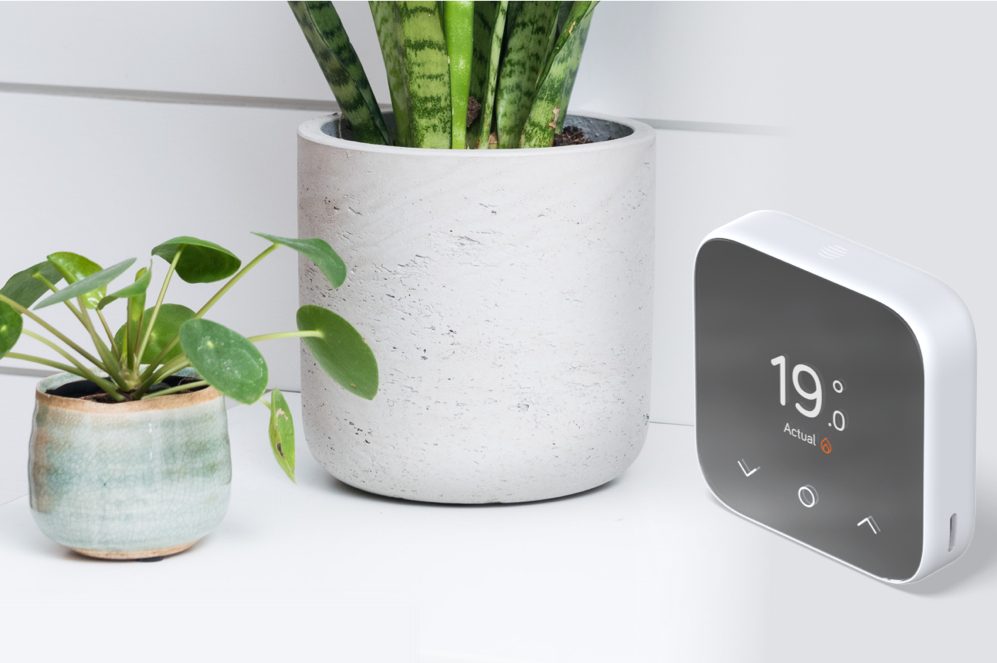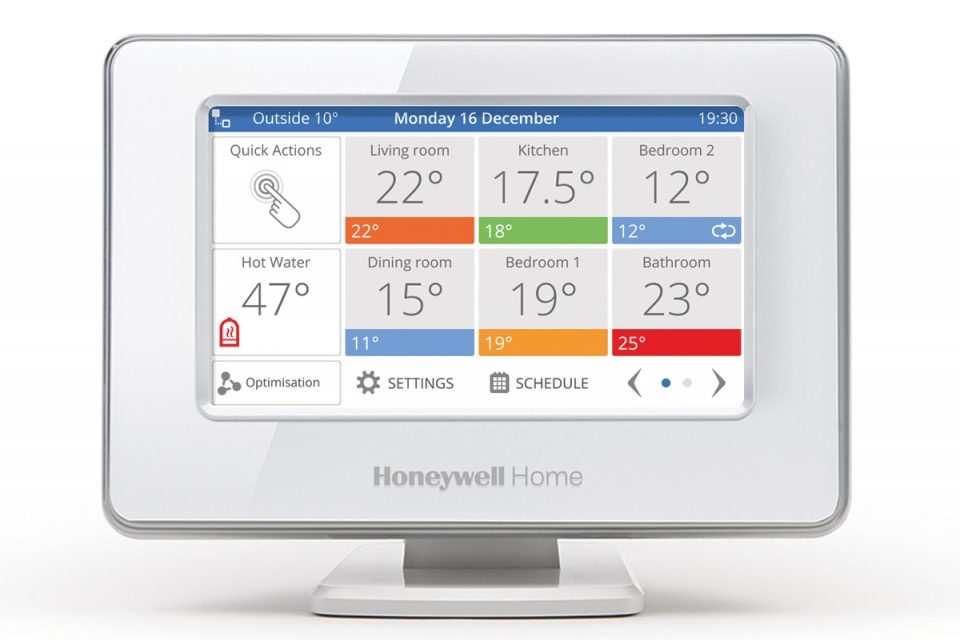[ad_1]
Are you thinking of turning the thermostat up? The cooler months are most definitely here and maybe, if you haven’t already, it’s time to finally upgrade to a smart thermostat. But in a crowded field, which is the best smart thermostat out there right now?
There are lots of reasons to upgrade your heating tech. Firstly, many of them let you talk to your heating via voice assistants like Amazon Alexa, Google Assistant and Siri, but the main benefit is saving you cash and cutting down on wasted energy.
Thanks to tech like geofencing and smart radiator valves, they can help your heating react to when you’re actually in, and only warm up the rooms you’re in. But where to start? That’s where we come in – we’ve reviewed the latest models out there to bring you a reliable recommendation.
Why you can trust Stuff: Our team of experts rigorously test each product and provide honest, unbiased reviews to help you make informed decisions. For more details, read how we test and rate products.
Quick list: what’s the best smart thermostat?
The best smart thermostats you can buy today:

1. Tado X
Tado’s V3 range of heating was already our favourite heating system, but Tado X range brings a new level of simplicity, convenience, and efficiency to smart home heating. Tado X is designed for effortless setup and use, the range includes five key devices – Wired and Wireless Smart Thermostats, Smart Radiator Thermostat, Wireless Temperature Sensor, and the Heat Pump Optimizer – alongside the Bridge X, a Thread border router for seamless connectivity.
The devices feature Matter and Thread standards, ensuring compatibility with a wide range of smart home ecosystems while providing enhanced stability and coverage, even in larger properties.
The Heat Pump Optimizer X is a standout innovation, delivering precise control over heat pumps to maximise energy efficiency. Another highlight is the sleek new Smart Radiator Thermostat design that now uses rechargeable batteries for added convenience, and user-friendly features like smart scheduling.
By combining these improvements with the company’s already great software services, such as Auto-Assist and dynamic energy tariffs, the Tado X range is a significant step forward.
It’s worth noting that the new tado° X products aren’t compatible with the existing tado° V3 system. So, if you already have a V3 setup, upgrading may not be worth it (unless you’re particularly eager to ditch frequent battery replacements).

2. Nest Learning Thermostat (4th Generation)
Nest’s learning thermostat is probably the device that made smart thermostats popular. Google claims the Nest will lower energy bills by up to 16%, and it’ll look stunning while doing so.
It’s also a smart and intuitive bit of kit. It gets to know how hot or cold you like your living room, turns itself down when you’re away and learns how draughty your home is. Bath lovers can also control the boiler through the Nest app, and will also show you how much energy you use every day.

3. Tado Wireless Smart Thermostat V3+
We think the third version of Tado’s Wireless Smart Thermostat is the best smart thermostat out there at the moment. It offers everything in home heating, from wired and wireless thermostats to smart radiator valves and even air conditioning control. Our pick of the bunch is the Wireless Smart Thermostat V3+, though.
The Wireless Smart Thermostat V3+ offers ease and accessibility and accommodates a wide range of heating systems. Its geofencing feature will heat your home before you arrive, and the app will monitor your heating system for problems and informs on how to solve them independently. It also needs very little DIY skills to get up and running, saving money on hidden installation fees.

4. Hive Thermostat Mini
The Hive Thermostat Mini is a favourite amongst the forgetful and those looking to control their energy bills. It can be controlled on a device, through the Hive app or by voice, and it will alert you should you pop out for the night only to think ‘have I left the heating on?’
The mini can control up to 6 heating zones in your home, the same as the more expensive Hive Thermostat, and has a frost protection feature which protects your pipes from freezing in winter. It’s also pretty sleek, or as sleek as an at-home thermostat can possibly be at least.
Hive is also currently offering 10% off its Thermostat when you subscribe to Hive Heating Plus, which keeps track of household carbon emissions and daily, weekly and monthly energy insights.

5. Honeywell Evohome
The Honeywell Evohome does everything you’d expect from a smart meter. It’s easy to use, can be controlled through an app and can link to Google Home and Alexa. Where the Honeywell Evohome excels, though, is in its home zoning.
Its smart zoning capabilities mean you only need to heat the areas you’re using, whether you want a toasty dining room or a cool bedroom. The Evohome can create up to 12 heating zones and adapts to radiators, underfloor heating and stored or shared hot water.

6. Wunda WundaSmart
Where most smart thermometers offer zoning features, WundaSmart takes it to the next level. The WundaSmart supports up to 30 rooms and 50 radiators. This is likely more than enough for the typical, non-palatial palace-dwelling person.
The Wunda app is also quick and easy to get to know, allowing you to schedule when to heat the house or to boost individual zones. It will also detect when windows are open.
What to consider when choosing a smart thermostat
A smart thermostat is an excellent way to boost energy efficiency, save money, and make your home more comfortable. However, with so many options on the market, it’s important to weigh several factors to find the best fit for your house.
Compatibility is key. Ensure the thermostat works with your specific heating system, whether it’s a traditional boiler, heat pump, or underfloor heating. Additionally, consider its integration with your existing smart home ecosystem. Many smart thermostats work with Alexa, Google Home, or Apple HomeKit, but not all do – so check for compatibility before you buy.
The features a thermostat offers can significantly impact its usability. Some models include geofencing, which adjusts the temperature based on whether you’re home or away, while others use learning algorithms to adapt to your daily routines. Zoning features are particularly valuable if you want to control temperatures in individual rooms. Energy tracking and usage reports can help you monitor your consumption and identify opportunities for savings.
Ease of use is another critical factor. A thermostat with an intuitive interface and a well-designed app makes scheduling and adjustments straightforward. Consider the display, controls, and whether the app supports remote management.
Finally, think about long-term connectivity and savings. Thermostats that support newer standards like Matter and Thread offer better integration with future smart home devices. While upfront costs can vary, many smart thermostats help reduce energy bills significantly over time, making them a worthwhile investment for both your wallet and the environment.
[ad_2]
Source link

